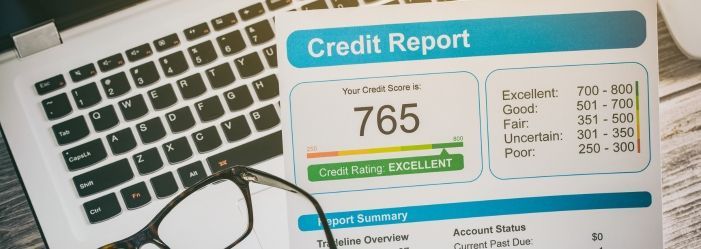Last Updated: April 05, 2024
Learn your rights when it comes to debt collection

One common thing people find themselves doing in this situation is engaging in collections and disputes on their credit reports. It's essential to understand the process and your rights if you decide to dispute a collection on your credit report yourself. Knowing how to beat a debt collector can be a significant advantage.
The first step is to verify that you do actually owe the money and that the debt has not exceeded your state's statute of limitations. The second step is to prove that you are being harassed by a debt collector if this is the case. If you're wondering what to say to debt collectors, you can consider seeking advice from professionals.
Speak to a debt specialist and get your FREE consultation. They can provide effective debt collection scripts and strategies to help you navigate the situation. They can even guide you on how to beat collection agencies at their own game.
What To Do If You are Sent to Debt Collections
If you are notified that you have been sent to debt collections, don't panic. f you are on the phone with a debt collector, remember the phrase "your debt has been paid" can be a powerful one.
We suggest the following:
- Get the debt collector company contact information, which can include the following: agent name, company name, address, and phone number of the debt collector. If they don't give out the collector's info, they could very well be a scammer.
- Do not correct your personal information on the phone - it could be a scammer
- Do not discuss the debt owed with the debt collector - that will come later
- Ask if this is an in-house collection department, a collection agency, or a debt buyer. You will have better luck getting a debt buyer to go away using a dispute letter, but an in-house debt collector for the original creditor or collection agency may be willing to settle or set up payment plans.
- Ask for a debt validation letter about the debt. The debt collector is legally required to provide you a written notice including:
- the amount of the debt you owe in debt collection
- name of the current owner of the debt
- the name of the original creditor.
Sometimes, requesting a validation letter can make the debt collector go away. If it does not, move on to checking on the debt from your end so that you can dispute a debt. For guidance, you can refer to a dispute letter template for collection, which outlines the necessary information. The debt collector is legally required to provide you with a written notice including:
DO NOT do any of the following:
- Give out financial information including your social security number, bank account numbers, or the value of any property (land, cars, etc) that you own.
- Make a “Good Faith” payment – this resets the statute of limitations on your debt.
- Admit that the debt is yours, or promise to pay – this can also reset the statute of limitations. Refer to the debt as “the debt,” but not “my debt.”
- Lose your temper – If you are abusive toward polite debt collectors, you look bad in court. Be aware of the common myths and scare tactics used by debt collectors to avoid falling for them. Let them be abusive, then contact a debt collection harassment attorney.
If you ignore debt collectors, you may end up being sued in court. It's essential to know the minimum amount a debt collection agency will sue you for.
Know Your Rights Under the FDCPA
The Fair Debt Collection Practices Act (FDCPA) is a federal law designed to eliminate abusive and deceptive practices by third-party debt collectors. It gives consumers important rights and protections.
Key provisions include:
Restrictions on Communication Tactics:
- Collectors can't call you before 8 a.m. or after 9 p.m. without your consent. This helps prevent harassment.
- If you request it, collectors must cease further communication with you. There are exceptions like legal notices.
- Collectors can't contact third parties like family, friends, or your employer about your debt without your permission. This prevents public embarrassment.
- Collectors can't send postcards or use social media to discuss your debt publicly. Your privacy must be protected.
Limits on Harassment and Abuse
- Collectors can't use violence, profanity, or obscene/abusive language when dealing with you. This prevents intimidation.
- Collectors can't call repeatedly in an attempt to harass you. There are limits to persistence.
- Collectors can't threaten to take actions they don't actually intend to take, like filing suit. No false threats are allowed.
- Collectors can't publish lists of debtors who refuse to pay ("deadbeat" lists). This prevents public shaming.
If a collector violates these rules, promptly report them to the Consumer Financial Protection Bureau. You may also sue them under the FDCPA and recover damages. It's important to stand up for your rights and hold violators accountable.
What to Do if You're Sued for a Debt
Being served with a lawsuit over an unpaid debt can be scary and overwhelming. However, it's absolutely critical that you don't ignore the court case. You typically have 20-30 days from receiving the summons to respond, or you will automatically lose the case by default.
Here are some steps to take:
Research Your Options
- Consult with a consumer rights attorney to understand your options and legal defenses. They can help craft an effective response.
- If hiring a lawyer isn't feasible, research how to respond to a debt collection lawsuit on your own. Many states have guidance for defendants without attorneys.
- Learn the deadline to respond and mandatory steps like filing an "Answer" to the complaint.
- Consider reaching out to the plaintiff to see if you can settle the debt and avoid court. Get any deal in writing.
Draft Your Response
- Respond to each numbered allegation in the complaint point-by-point, either admitting, denying, or stating you lack information to respond.
- Assert any affirmative defenses that apply, like the statute of limitations expiring on the debt or it not belonging to you.
- Provide factual support for your defenses. Attach any evidence like payment records.
- Stick to the provable facts. Don't include irrelevant details or emotionally-charged language.
File and Serve Your Response
- Make several copies of your completed response. You'll need one for the court, one for your records, and one for the plaintiff.
- File the original with the court clerk before the deadline. Get a time-stamped copy proving it was filed.
- Have someone over 18 who isn't involved in the case "serve" a copy to the plaintiff. Service ensures they receive the response.
Show Up in Court
- If the case isn't resolved beforehand, make sure to show up for any hearings or trial dates. Bring all your evidence and any witnesses.
- Dress professionally and be respectful. Stick to the provable facts and let the judge decide.
- If you lose, you may be able to appeal depending on the circumstances. Consult an attorney first.
Debt lawsuits can be complicated, but with the proper preparation, you can avoid defaulting and give yourself the best chance of success. Don't go it alone if possible - an experienced attorney can help navigate the process.
Verifying the Debt
Your next steps are to verify the debt is actually yours. Mistakes do happen, and so does identity theft. Understanding the best credit dispute reasons can aid in your defense. Ask for a debt validation letter to begin the process. The credit agencies or debt collection company is required to provide you with a validation letter.
If it is not yours, you will send a letter to the collections company explaining the situation. If it was due to identity theft, you will need to contact law enforcement and credit reporting agencies.
If the debt is indeed yours, check to see if the dollar amount is correct. In fact, in 2020, more than 52% of consumer complaints to the Consumer Financial Protection Bureau were from consumers who were contacted about debts that were not theirs. If it is not your debt, document it in the dispute letter.
Check on the debt circumstances - is this yours, was there an error in calculating what you owe, did the creditor misplace a payment, etc?
Finally, check on the age of the disputed debt and on the statute of limitations in the state where the debt was acquired. If it is "time-barred" or older than that date, often five to ten years, you may not owe it. For more about time-barred debt, check out this link.
Zombie Debt
There is something called zombie debt - this is an old debt that keeps coming back to haunt you. These can be tricky and may require strategies on how to beat debt collectors who persistently bring up old debts. Keep copies of all correspondence about these debts, so you can prove that this is a zombie debt anytime this may come up in the future.
Now that you have all the information that you need to dispute the collections demand letter, it is time to write a debt dispute letter. The dispute letter must be done within 30 days of the notification. If you're unsure where to start, consider using pre-written letters to remove collections as a template to ensure you include all the necessary details.
The Debt Dispute Letter
In the debt dispute letter explain why the information is incorrect and supply any documentation to support your claims. Send copies, not the actual documents. Check out this link from the FTC for a sample dispute letter.
- Be polite - no threats or obscene or profane language
- Explain any misunderstandings
- Send copies of documents that support your argument – do not send the actual documents
- Send the dispute letter with confirmation of delivery
- Do not make promises to pay if you do not plan to pay
- Do not admit you are responsible
- Do not lie
If you agree to pay or make a "good faith" payment, it can reset the statute of limitations clock. Don't be pushed into paying. You are already in collections. It won't get worse for a while.
Your dispute letter should include the following:
"I am responding to a collections contact, and I do not believe I owe the debt." Next, explain why and refer to any documentation you have. Then request they provide proof that you actually owe the debt. If they can not provide proof, they must stop contacting you.
If you are lucky and this is a debt buyer without documentation that you owe the debt, they may go away.
Always keep copies of letters and use certified mail to send the dispute letter (tracking and delivery or return receipt requested).
How to Remove Collections from Your Credit Report
If you have a valid reason, you may be able to get a collection deleted from your credit report.
Consider these:
- Disputing it with the credit bureaus if you have evidence it's inaccurate.
- Negotiating directly with the collections agency for removal in exchange for payment. Get any deal in writing first.
- Asking the creditor for a goodwill deletion if you can show extenuating circumstances like illness led to the delinquency.
- Proving the collection is past the 7-year reporting limit and should be removed.
Persistence and documentation are key to success. Don't give up if your first attempts are rejected. Learn more about the little-known secrets of debt relief to enhance your approach.
Checking Your Credit Report

Your next step is to check your credit report with each credit reporting agency. For more about checking your credit score, click here. You may be able to get the debt removed from your report if it is there and you can prove it should not be.
Harassment by Debt Collectors
Under the Fair Debt Collection Practices Act, you are protected against harassing behavior by debt collectors. Many states have a version of this federal law as well, adding extra protection against business owner harassment.
These actions are prohibited by collection agencies and debt collectors:
- Pretending to be a government official or an attorney or sending out letters that appear to be from an attorney but are not
- Contacting you between 9 p.m. and 8 a.m. without your permission
- Threatening violence or using profanities when speaking to you (don’t be rude to a collector. It can work against you if the phone calls are replayed in court.)
- Contact third parties (family, friends and employers) about your debt or otherwise embarrassing you – keep your contact information up-to-date and debt collection agencies cannot contact third parties.
- Speaking to your employer except under limited conditions - see above
- Sending derogatory messages about you to a credit reporting agency
- Sending information on a postcard – this can include social media.
- Attempting to collect an expired debt
- Hiring an unlicensed credit collection agency
- Communicating with you if you are represented by an attorney
If you are experiencing these:
- Keep a Log Book – Write down the date and time, the name of the debt collector, what debt the collector is after, and what the debt collector says. Keep all mail, copies of texts, etc., as well.
- Consider telling the debt collector to stop contacting you – If you want to work towards a settlement, you may not want to take this step.
- Tell debt collectors if the debt is not correct
- Tell debt collectors if you legitimately can’t pay
- Give them your current contact information as long as you verify that this is your debt and that the debt collector is not a scammer.
If you have a record of FDCPA violations, you can take the debt collection agency to court and win a judgment and have your debt erased. However, be cautious of
the worst things debt collectors can do. Knowing how to fight a collections claim can be a significant advantage in such situations.
Do's and Don'ts When Dealing with Debt Collectors

DO:
- Request written validation if you dispute owing the debt or the amount.
- Keep detailed records of all calls, letters, and communications.
- Know your rights under the FDCPA and your state's laws.
- Send cease and desist letters if collectors are harassing you.
- Report violations to the CFPB and your state attorney general.
- Negotiate - offer less than the full amount if you can't pay in full.
- Accept any settlement offers in writing before paying.
- Do check your credit reports at least once a year and fix any errors you find.
- Do try to settle the debt by offering to pay (and then actually pay) a percentage of the debt. Start with half the amount you owe. It will show up as settled, but at least it is off your back.
- Do keep all copies of correspondence, letters, texts, emails, etc. that pertain to the debt or are from debt collectors. The debt may show up again!
DON'T:
- Provide sensitive personal or financial information over the phone.
- Make partial "good faith" payments - this can reset the statute of limitations.
- Promise to pay without having the ability to follow through.
- Miss any court hearing dates if you're sued over the debt.
- Ignore calls or letters from collectors - this can lead to lawsuits.
- Verbally abuse collectors - be firm, but always professional.
- Agree to settlements you can't get in writing first.
- Do not ignore attempts by the original creditor. You may be able to work out a payment plan.
- Do not ignore the debt collector. You may be able to make them go away just by asking them to prove you owe the debt.
If nothing else works, you may need either legal help or the assistance of a reputable debt relief company like Pacific Debt Relief. Discover why you should consider using a debt relief program to manage and potentially alleviate your debt.
FAQs
Conclusion
Dealing with debt collectors can be extremely stressful, but having knowledge of your rights and taking proactive steps is critical. Carefully verify any reported debts and dispute inaccuracies promptly in writing while also requesting validation if needed.
It's important to keep detailed records of all communications and collector contact information. Make sure you understand your protections under laws like the FDCPA, don't hesitate to report any violations, and equip yourself with debt relief facts you should know to navigate through the process effectively.
If sued over a debt, respond promptly and seek legal help when feasible. You should also explore options for removing valid debts from your credit reports. Ignoring calls or letters from collectors is never advised - always communicate professionally in writing when possible.
Be cautious about providing sensitive information or making partial payments without a written agreement in place. If you do owe a valid debt, consider affordable options like settlements and payment plans to resolve it ethically. With the right preparation and knowledge, you can handle debt collectors effectively while still protecting your rights.
If you are struggling with overwhelming debt and want to explore your debt relief options, Pacific Debt Relief offers a
free consultation to assess your financial situation. Our debt specialists can provide objective guidance relevant information and support to help find the right debt relief solution.
✔ Accredited by Better Business Bureau with BBB A+ rating (4.92 rating and 1,700+ reviews)
✔ 7.5 star rating by BestCompany.com (over 2300+ client reviews)
✔ 4.8 star rating by TrustPilot (over 2200+ verified consumer reviews)
✔ ConsumerAffairs.com Accredited (over 500+ verified reviews with an average rating of 5 stars)
✔ A Top 10 Rated Compan by TopTenReviews.com , ConsumersAdvocate.com and Top10debtconsolidation.com
✔ 4.6 star rating by Google (400+ client reviews)
✔ 100% rating by SuperMoney (8 client reviews)
Reduce Your Credit Card Debt By Up to Half

BBB Reviews | 4.9/5.0 Rating









 Do Not Sell My Personal Information
Do Not Sell My Personal Information